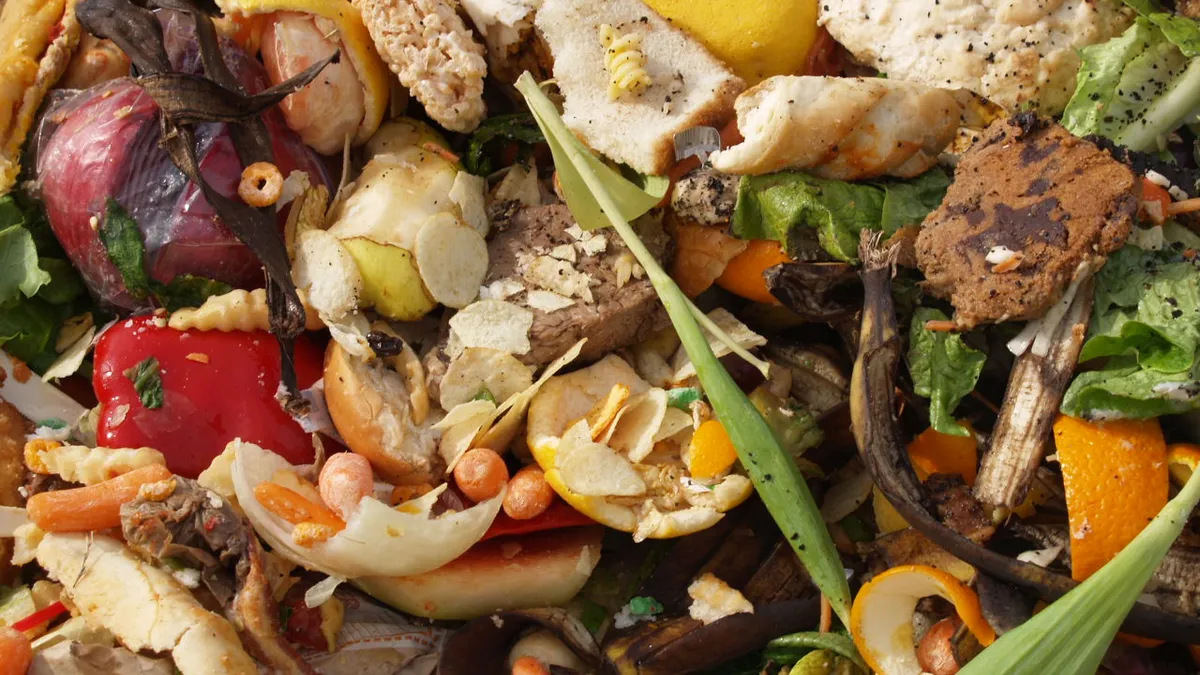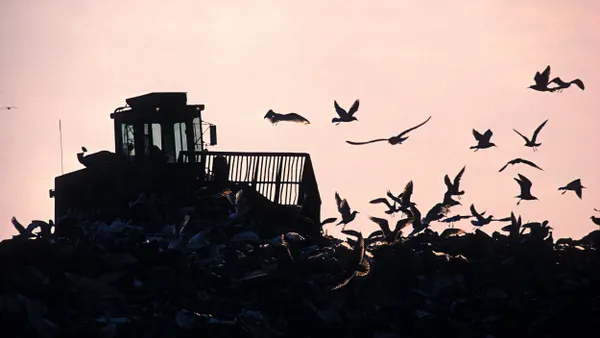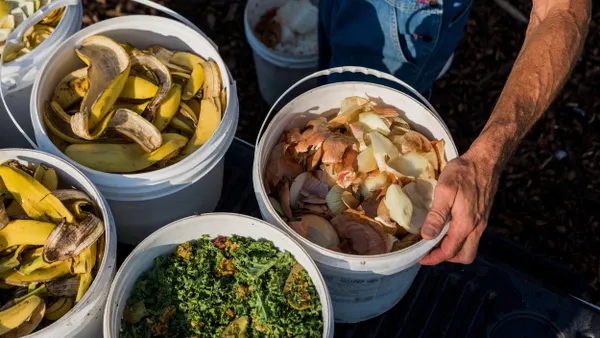Dive Brief:
- A new study from researchers at Canada's Concordia University, conducted in partnership with Bio-Terre Systems Inc., has found potential for a type of anaerobic digestion that works in low-temperature environments (20°C), as reported by Science Daily.
- The study, published in the journal "Process Safety and Environmental Protection," examined how psychrophilic bacteria broke down food waste in low-temperature settings. Researchers found that this process produced similar methane yields as traditional anaerobic digestion systems while using less energy to heat the bioreactors.
- "There is enormous potential here to reduce the amount of fuel that we use for solid waste treatment," said co-author Mohammad Saifur Rahaman. "Managing and treating food waste is a global challenge, particularly for cold countries like Canada where the temperature often falls below -20°C and energy demands related to heating are high."
Dive Insight:
Launching this concept could take time, with many questions such as the effect that lower temperatures may have on mitigating pathogens in digestate, but the Concordia team described it as the beginning of "a promising new research direction." Using a semi-continuous feed process, they performed multiple tests on material extracted from treated effluent after digestion and found consistently positive results about the quality of biogas being generated. If this system can be replicated on a large scale it could make a big difference in the operating costs associated with heating needs at existing digesters.
This type of operation could be particularly useful in countries such as Canada, where organics diversion is already a high priority for certain provinces and is becoming an even greater one in others. As municipalities in any country look at their options for new conversion technologies, anaerobic digestion is often featured near the top of the list, though the costs involved can sometimes be a hindrance. The system described by this Concordia research team could help lower operating costs and potentially change the equation for projects that might otherwise be deemed too expensive in colder climates.
According to Bio-Terre Systems' website, this technology was initially researched by Canada's Department of Agriculture and Agri-Food more than 25 years ago. The company was founded in 1998 to pursue commercialization and became co-owner of a patent with the government in 2003. Though they acknowledge testing at multiple sites over subsequent years, the site's timeline doesn't extend beyond 2007 and Bio-Terre could not be reached for comment prior to publication.












